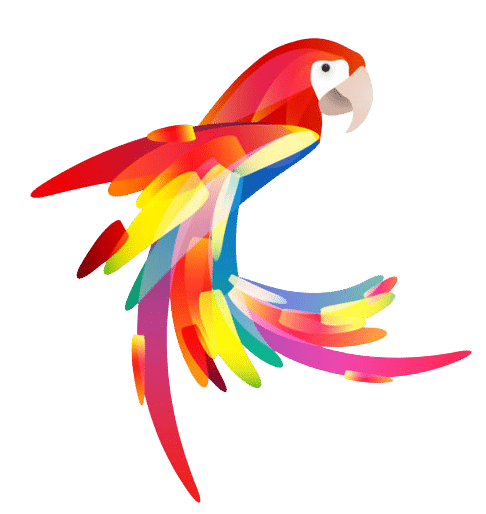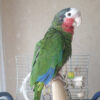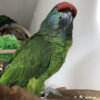Black Billed Amazon Parrot For Sale
Black Billed Amazon Parrot For Sale , commonly referred to as the Black-billed Parrot, is native to Jamaica and the West Indies. Compared to the yellow-billed amazon, this bird is smaller and weighs between 10.5 to 11.5 inches (27 and 29 centimeters). The bill of a male is very dark gray, almost black, and it gets lighter toward the base. Small groups or flocks of up to Thirty birds may contain these parrots, who are perfectly concealed by their green feathers in the jungle canopy. Their shrieking sounds made while in flight are typically used to locate them.
It should be noted that, all our Amazon parrot for sale is covered with a 60-days health guarantee by the Bird Breeder. If you have questions about what is covered, please view the Law associated with your state.
Within 60 days of purchasing your new baby parrot, you must take him/her to a licensed veterinarian for an examination. If the veterinarian determines, within 60 days of purchase, that the bird is clinically ill or will die from an injury sustained or illness likely to have been contracted on or before the date of sale and delivery, you have the following options:
- Return the bird for a complete refund.
- Return the bird for a replacement Bird of equal value.
- Retain the bird and receive reimbursement for reasonable veterinary fees, not exceeding the purchase price.
Breeding
Breeding occurs between March and August. The couple can make use of a weather-dug natural hole or an abandoned Jamaican Woodpecker nest. There, the female will produce 3 to 4 eggs, which she will then take care of for 26 days. At around 8 weeks, the baby will depart the nest. Natural state of the situation. This bird’ habitat is deteriorating in a very restricted area. Caging and predation result in further population declines.
Feeding Black Billed Amazon Bird
Black billed amazon birds consume a wide range of seeds, nuts, vegetables, berries, and plants. Pet Amazons should consume fresh food, combined with pelleted bird food. Amazon parrots prefer to graze all day long, so put a day’s worth of pellets in a cage dish that can’t be chewed or tipped over. Also, always provide your bird with access to clean water. You may use a water dish or a container that fastens to the enclosure’s side. Bottles are often easier to keep clean because many birds prefer to dip meals in water basins or even take baths in them.





Reviews
There are no reviews yet.